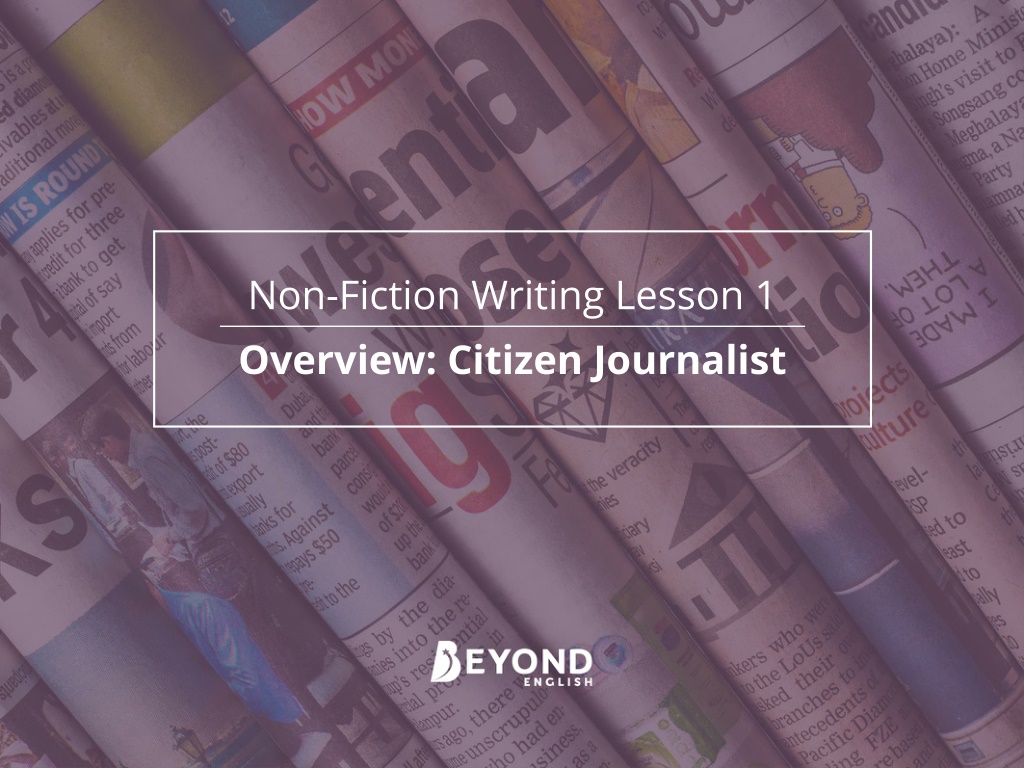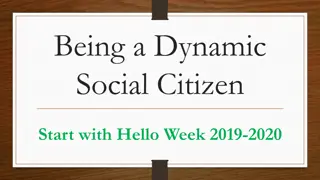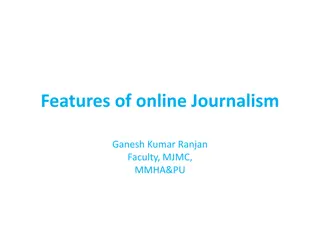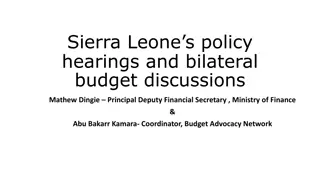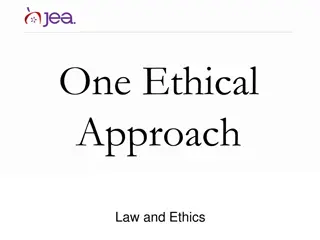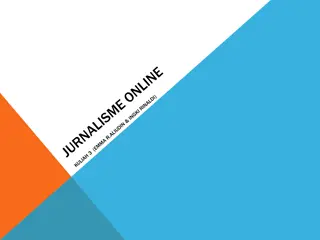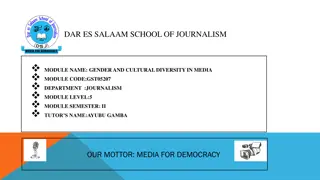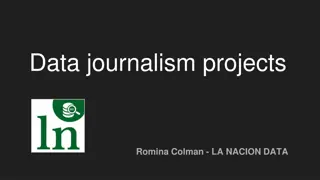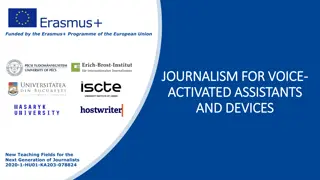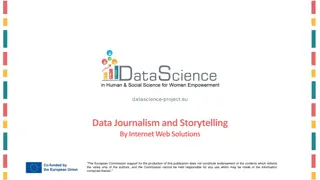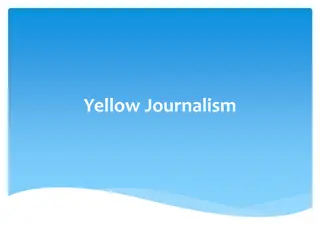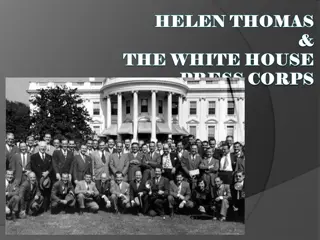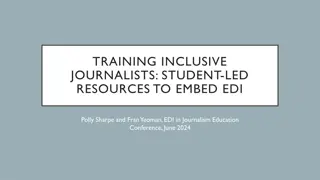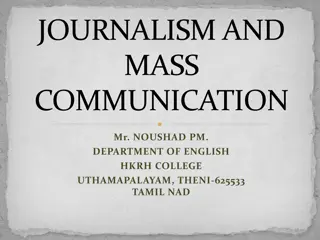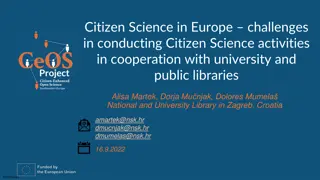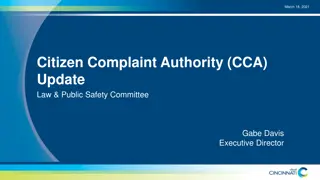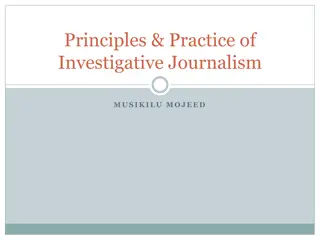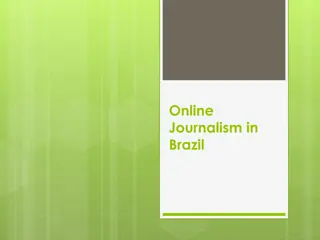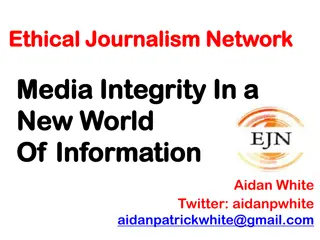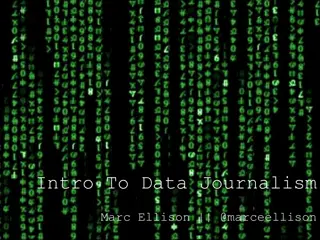Exploring Citizen Journalism and Non-Fiction Writing
Explore the world of citizen journalism and non-fiction writing, learning about text types, adapting writing to conventions, considering audience, purpose, and tone. Discover the significance and usefulness of non-fiction writing, and delve into creating various text types. Uncover the role of citizen journalists in collecting, reporting, analyzing, and sharing news in today's digital era. Engage in activities like headline writing, editing, reviews, and more to hone your skills in non-fiction writing.
Download Presentation

Please find below an Image/Link to download the presentation.
The content on the website is provided AS IS for your information and personal use only. It may not be sold, licensed, or shared on other websites without obtaining consent from the author. Download presentation by click this link. If you encounter any issues during the download, it is possible that the publisher has removed the file from their server.
E N D
Presentation Transcript
Non-Fiction Writing Lesson 1 Overview: Citizen Journalist
Learning Objective To gain an overview of non-fiction text types. Success Criteria To realise the significance and usefulness of non-fiction writing. To begin adapting our writing according to text conventions. To consider the importance of audience, purpose and tone.
The Reality of Reading and Writing Make a list of all the things you read Now, make a list of all the things you write How many match up? Categorise them into fiction and non-fiction. Key Terms Fiction: literary prose formed in the imagination. Non-fiction: writing based in reality.
Different Realities What do you notice about these exam papers? eduqas Part of WJEC GCSE ENGLISH LANGUAGE Component 2 19th and 21st Century Non-Fiction Reading and Transactional/Persuasive Writing AQA GCSE ENGLISH LANGUAGE Paper 2 Writers viewpoints and perspectives OCR Oxford Cambridge and RSA GCSE (9-1) English Language J351/01Communicating information and ideas Pearson Edexcel Level 1/Level 2 GCSE (9-1) English Language Paper 2: Non-fiction and Transactional Writing What ties them together?
Citizen Journalist Non-fiction writing is typically of greater use in the real world. Few of us grow up to be authors of novels, but we all have to communicate ideas and opinions in some form of writing, be it text message, email or business report. One component of non-fiction is transactional writing. This includes letters, emails and speeches. Transaction suggests trade or exchange; that you write with a view to getting something in return. Newspapers are a prime example of a non-fiction text, though traditional news is undergoing a transformation in the digital era. Citizen journalism refers to ordinary people, empowered by technology, playing an active role in the process of collecting, reporting, analysing and sharing news and information. In this unit you will be playing the role of citizen journalists. Objective: to tailor writing to a range of different text types.
Tomorrows Headlines Lesson 2: Breaking News Lesson 3: Headline Writing Lesson 4: Letters Lesson 5: Editing and Proofreading Lesson 6: Opinions Lesson 7: Reviews Lesson 8: Advertising Lesson 9: Leisure, Lifestyle and Travel Lesson 10: Diaries and Blogs Lesson 11: Finance Lesson 12: Recipes for Success Across this unit, you will practise creating all the components of a newspaper, as well as considering how else the skills learned might apply to modern life. End of Unit Assessment: Work collaboratively to create a school newspaper.
Recounting vs. Reporting Reports are a more objective, formal version of events, incorporating the 5 Ws: Who was involved? What happened? When did it occur? Where did it occur? (all in opening paragraph) Why did it happen? (in development) Recount: A chronological first or third person narrative of what happened, usually communicated verbally using informal language. Example Kate and Rio were messing about, then he said something bare mean about her new haircut and she proper slapped him. That s when Mrs Jaworski walked in! She shouted at Kate and took her to the headteacher, but then Rio got in big trouble too coz all us who were there had to write an account of what happened. Yesterday, during morning break, a disagreement occurred between Kate Spicer and Rio Tombides (both Year Nine). Their teasing took a violent turn when Ms Spicer struck Mr Tombides following a remark he is alleged to have made about her hair. Class teacher Mrs Jaworski entered C3 just in time to witness the altercation. Head teacher Mr Pryor has taken witness statements.
Breakfast News Write a report on part of your morning routine as if it were worthy of being published in a newspaper. You could write about: waking up; getting dressed; having breakfast; washing; the journey to school. Write at least one paragraph. Remember to write in the third person and to use the 5 Ws top marks for managing to incorporate why! Now, share your work with a partner. Identify the 5Ws in your partner s report.
Make it APT With everything you write, the key is to be aware of APTness. Audience Who will read your writing? Purpose What are you writing and why? Tone What voice/mode of language best fits? Thinking back to the recount and report, identify the audience, purpose and tone of each. Which changed in the retelling?
Takeaways It is an important skill both in journalism and in general life to evaluate information and to decide what is most important and what needs to be retained. What is your main takeaway from this lesson? Write it on your Tracking Sheet and grade your level of knowledge and understanding. Then share your takeaway with the person on either side of you. Are they the same? Explain your reasoning to each other.
